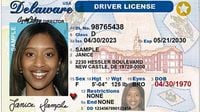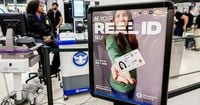As of May 7, 2025, the long-anticipated REAL ID requirement is now officially in effect across the United States. This federal law mandates that all airline passengers aged 18 and older must present a REAL ID-compliant driver’s license or another federally accepted form of identification to board domestic flights or enter secure federal facilities. The implementation of this law, which has been delayed multiple times since its initial proposal, aims to enhance security in air travel and federal buildings, following recommendations from the 9/11 Commission.
The REAL ID Act was passed by Congress in 2005 in response to the September 11 terrorist attacks, with the intention of creating a standardized system for issuing more secure identification documents. However, the rollout has faced numerous setbacks over the years, initially scheduled to begin in 2008 but postponed due to various challenges, including opposition from several states and the COVID-19 pandemic.
On the eve of the enforcement date, Secretary of Homeland Security Kristi Noem assured travelers that those without a REAL ID would still be able to fly, albeit after undergoing additional identity checks. "We will make sure it’s as seamless as possible," she stated, emphasizing that 81% of travelers already possess IDs that meet the new requirements. Passports, military IDs, and tribal IDs will continue to be recognized at security checkpoints.
Travelers are advised to arrive at airports earlier than usual, as the Transportation Security Administration (TSA) will be implementing these new measures. TSA Acting Executive Assistant Administrator for Security Operations, Steve Lorincz, noted that while they are fully staffed and do not anticipate significant delays, travelers without a compliant ID may be directed to a different line for additional screening.
Many states, including California, Idaho, and Missouri, have reported increased demand for REAL ID-compliant licenses in the lead-up to the deadline. In California, for example, more than 19 million residents have obtained their REAL IDs, representing about 55% of all issued cards. However, over 15 million Californians still lack this identification, prompting state officials to recommend that those with valid passports wait to apply for a REAL ID until their next license renewal.
Despite the looming enforcement, some officials have clarified that obtaining a REAL ID is not mandatory unless individuals plan to travel by air or enter federal facilities. For instance, Trish Vincent, Director of the Missouri Department of Revenue, emphasized that the REAL ID is voluntary for residents who do not anticipate needing it for travel.
To obtain a REAL ID, applicants must provide various documents to verify their identity, residency, and Social Security number. This includes original or certified copies of documents such as birth certificates, marriage licenses, and utility bills. The process can be more complex for individuals with name changes, as they must present legal documentation of those changes.
In Idaho, the Idaho Star Card serves as the state’s REAL ID-compliant identification. Britt Rosenthal from the Idaho Transportation Department explained that while obtaining a Star Card is not mandatory, those without it will need to present alternative federally accepted forms of ID, such as a U.S. passport or military ID, to board flights.
As the deadline has now passed, travelers who have not yet obtained a REAL ID are encouraged to apply at their local Department of Motor Vehicles (DMV) as soon as possible. The application process varies by state, and many DMVs are experiencing high demand, leading to potential wait times for appointments.
In summary, the REAL ID requirement is now in place, marking a significant shift in how identification is managed for air travel and access to federal facilities. While the transition may present challenges for some, officials are working to ensure a smooth experience for all travelers. As Secretary Noem stated, "We are going to process you. It might take some additional time, but we are going to do it efficiently." The emphasis remains on enhancing security while minimizing disruption.
For those yet to secure a REAL ID, it is crucial to stay informed about the requirements and prepare for potential delays at airports. With the new regulations now in effect, understanding your options and ensuring compliance will be key to a hassle-free travel experience.


